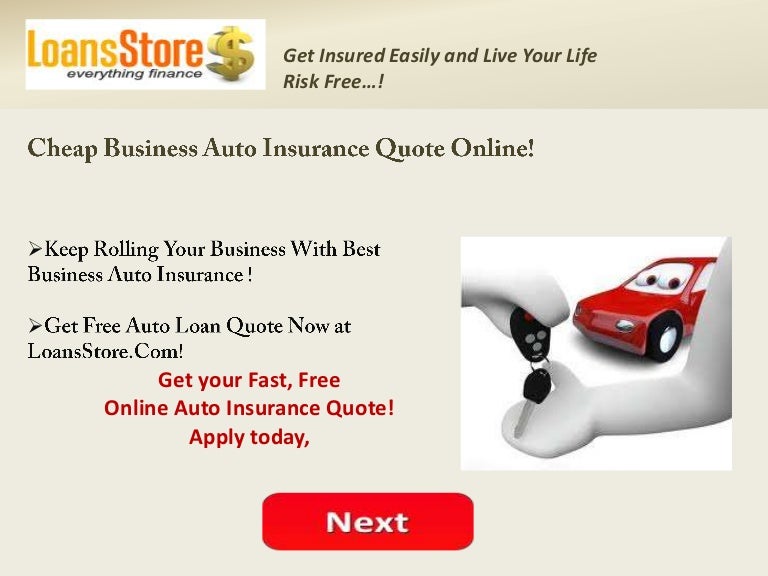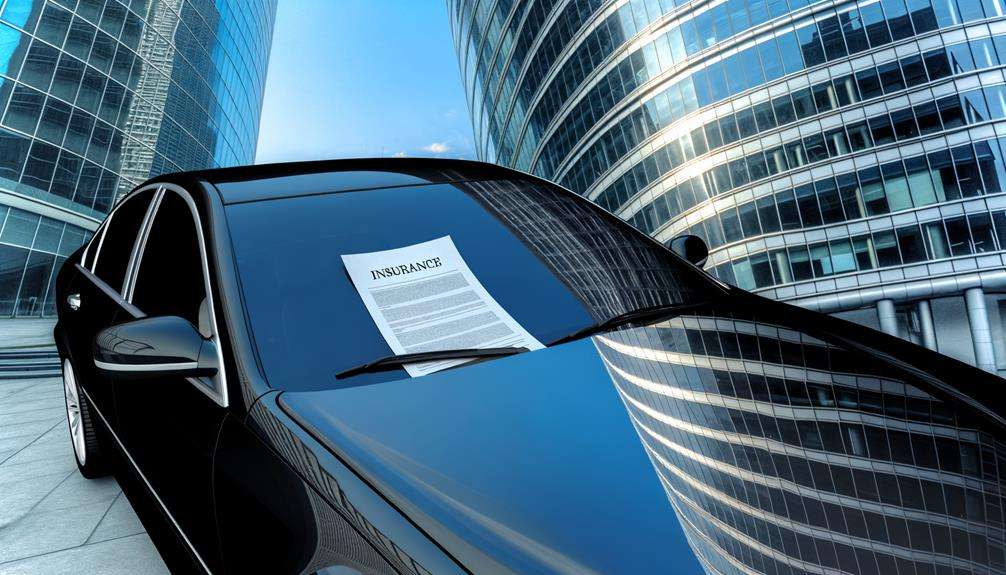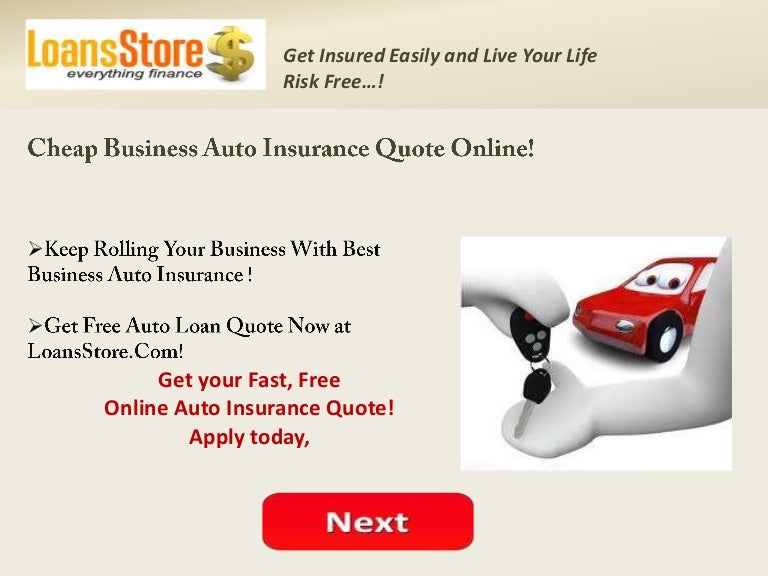Business car insurance quotes are essential for any company that relies on vehicles for operations. These quotes provide crucial information about the cost of insuring your business vehicles, helping you make informed decisions about coverage and premiums. Understanding the factors that influence these quotes and the various coverage options available is vital for ensuring adequate protection for your business and its assets.
Navigating the world of business car insurance can feel overwhelming, with a multitude of factors impacting your premiums. From the type of vehicle and its intended use to your business’s industry and the driving history of your employees, every aspect plays a role in determining the final quote. This guide will break down the complexities of business car insurance quotes, providing insights into how they’re calculated and how to obtain the best value for your company.
Understanding Business Car Insurance

Protecting your business assets is paramount, and your company vehicles are no exception. Business car insurance is a crucial aspect of safeguarding your financial well-being and ensuring smooth operations. This type of insurance is designed specifically for businesses that use vehicles for work-related purposes, offering coverage that differs significantly from personal car insurance.
Differences Between Personal and Business Car Insurance
Personal car insurance is designed to protect individuals and their personal vehicles, while business car insurance is tailored to the specific needs of businesses. Here’s a breakdown of the key differences:
- Coverage: Business car insurance provides broader coverage than personal car insurance, including coverage for business-related activities such as transporting goods, carrying passengers, and using the vehicle for marketing or advertising. It also often includes coverage for business liability and other risks specific to business operations.
- Premiums: Business car insurance premiums are generally higher than personal car insurance premiums due to the increased risks associated with business use. Factors such as the type of business, the number of vehicles, the driving habits of employees, and the value of the vehicles all contribute to the premium calculation.
- Claims Process: Business car insurance claims are typically handled differently than personal car insurance claims, as they involve complex business-related factors and potential liability issues. Business car insurance policies may also have specific requirements for reporting claims and handling investigations.
Factors Influencing Business Car Insurance Premiums
Several factors determine the cost of business car insurance premiums. Understanding these factors can help you make informed decisions about your coverage and potentially reduce your premium costs.
- Type of Business: Businesses involved in high-risk activities, such as construction or transportation, will typically pay higher premiums than businesses with lower-risk activities.
- Number of Vehicles: Businesses with a larger fleet of vehicles will generally pay higher premiums than businesses with fewer vehicles.
- Driving Habits: The driving habits of employees, such as their driving record, mileage, and the types of roads they travel on, can influence premium costs.
- Value of Vehicles: The value of the insured vehicles is a significant factor in premium calculation. More expensive vehicles will generally have higher premiums.
- Location: Businesses located in high-crime areas or areas with high traffic congestion may face higher premiums.
- Deductibles: Choosing a higher deductible can help lower your premium, but it also means you’ll have to pay more out-of-pocket if you need to file a claim.
- Coverage Limits: Higher coverage limits, such as for liability or collision coverage, will generally result in higher premiums.
Coverage Options in Business Car Insurance Policies
Business car insurance policies typically offer a range of coverage options to meet the specific needs of businesses. Understanding these options is essential for choosing the right policy for your business.
- Liability Coverage: This coverage protects your business from financial losses if you are found liable for an accident that causes injury or damage to others.
- Collision Coverage: This coverage pays for repairs or replacement of your vehicle if it is damaged in an accident, regardless of fault.
- Comprehensive Coverage: This coverage protects your vehicle against damage caused by events other than collisions, such as theft, vandalism, or natural disasters.
- Uninsured/Underinsured Motorist Coverage: This coverage provides protection if you are involved in an accident with a driver who is uninsured or underinsured.
- Medical Payments Coverage: This coverage pays for medical expenses for you and your passengers, regardless of fault, if you are involved in an accident.
- Rental Reimbursement Coverage: This coverage helps pay for a rental car if your vehicle is damaged and needs repairs.
- Towing and Labor Coverage: This coverage helps pay for towing and labor costs if your vehicle breaks down or is involved in an accident.
- Business Property Coverage: This coverage protects your business property, such as tools, equipment, and inventory, that is being transported in your vehicle.
- Business Income Coverage: This coverage helps pay for lost income if your business is unable to operate due to a covered accident.
- Personal Injury Protection (PIP): This coverage helps pay for medical expenses and lost wages for you and your passengers, regardless of fault, if you are involved in an accident.
Factors Affecting Business Car Insurance Quotes
Insurance companies consider a variety of factors when calculating business car insurance quotes. These factors aim to assess the risk associated with insuring your business vehicles, and ultimately determine the premium you’ll pay. Understanding these factors can help you make informed decisions about your insurance coverage and potentially save money.
Vehicle Type
The type of vehicle you use for your business significantly influences your insurance premium. For example, a delivery truck will have a higher premium than a sedan because it poses a greater risk of accidents and potential damage. Here’s a breakdown of how different vehicle types affect your insurance:
- Commercial Vehicles: These include trucks, vans, and other vehicles specifically designed for business use. They often carry heavier loads and have a higher risk of accidents, leading to higher premiums.
- Passenger Vehicles: These are typically used for personal transportation but can also be used for business purposes. They generally have lower premiums compared to commercial vehicles.
- Specialized Vehicles: These include vehicles like construction equipment, tow trucks, and ambulances. Due to their unique characteristics and potential for high-risk situations, they usually have the highest premiums.
Business Use, Business car insurance quote
The way you use your vehicle for your business also plays a crucial role in determining your insurance premium. Businesses that involve frequent driving, transporting hazardous materials, or operating in high-traffic areas generally have higher premiums.
- Driving Distance: The more you drive your vehicle for business purposes, the higher the risk of accidents, resulting in a higher premium.
- Cargo Type: If you transport valuable goods or hazardous materials, your insurance premium will be higher due to the increased risk of damage or liability.
- Business Location: Operating in urban areas with heavy traffic and congestion typically leads to higher premiums compared to rural areas.
Driver History
Your company’s driving history is a significant factor in determining your insurance premium. A history of accidents, traffic violations, or DUI convictions can significantly increase your premium.
- Driving Record: A clean driving record with no accidents or violations will generally result in lower premiums.
- Driver Training: Completing defensive driving courses or other driver training programs can demonstrate a commitment to safe driving practices and potentially lead to lower premiums.
- Years of Experience: Drivers with more experience typically have a lower risk of accidents, leading to lower premiums.
Industry Type
Different industries have varying risks associated with their vehicle use. For example, a construction company will have a higher risk of accidents than a retail store, resulting in higher insurance premiums.
- Construction: Businesses in this industry often operate heavy equipment and work in hazardous environments, leading to higher premiums.
- Transportation: Businesses involved in transporting goods or passengers have a higher risk of accidents due to frequent driving and long distances, resulting in higher premiums.
- Retail: Businesses that primarily use vehicles for local deliveries or customer service typically have lower premiums due to lower risk.
Getting Business Car Insurance Quotes
Obtaining business car insurance quotes is a crucial step in protecting your business and ensuring you have the right coverage. This process involves gathering information about your business and vehicles, comparing quotes from different insurance companies, and selecting the policy that best meets your needs.
Gathering Information for Accurate Quotes
Accurate quote calculations rely on providing comprehensive information about your business and vehicles. Here’s a breakdown of the essential information you’ll need to provide:
- Business Information: Your business name, address, type of business, and annual revenue. Insurance companies assess risk based on your industry and business operations.
- Vehicle Information: Make, model, year, and VIN (Vehicle Identification Number) for each vehicle used for business purposes. This information helps determine the vehicle’s value and risk associated with it.
- Driver Information: Details about the drivers who will operate the vehicles, including their names, ages, driving records, and years of driving experience. This helps insurers assess driver risk.
- Usage Information: The purpose of the vehicle (e.g., delivery, sales, company car), average mileage driven per year, and geographic area where the vehicles operate. This provides insights into the vehicle’s usage and potential exposure to risk.
- Claims History: Information about any previous insurance claims filed by your business. This data allows insurers to assess your claims history and risk profile.
Checklist of Essential Documents
Before requesting quotes, having the following documents readily available can streamline the process:
- Business License or Registration: Proof of your business’s legal operation.
- Vehicle Registration: Documentation confirming ownership of each vehicle.
- Driver’s Licenses: Valid licenses for all drivers who will operate the vehicles.
- Insurance History: Previous insurance policies and claims history.
- Financial Statements: Recent financial statements, including income statements and balance sheets, to demonstrate your business’s financial stability.
Comparing Business Car Insurance Quotes

You’ve gathered multiple quotes for business car insurance, and now it’s time to compare them to find the best value for your business. This involves analyzing the coverage, premium, and deductibles offered by each insurer.
Comparing Quotes
The best way to compare quotes is to organize them into a table. This will allow you to easily see the differences in coverage, premium, and deductibles.
Here is an example of a comparison table:
| Insurer | Coverage | Premium | Deductible |
|—|—|—|—|
| Insurer A | Comprehensive, Collision, Liability | $1,000/month | $500 |
| Insurer B | Comprehensive, Collision, Liability, Uninsured Motorist | $1,200/month | $1,000 |
| Insurer C | Comprehensive, Collision, Liability, Uninsured Motorist, Rental Reimbursement | $1,500/month | $250 |
Analyzing Quotes
Once you have a table of quotes, you can begin to analyze them. Consider the following:
- Coverage: Make sure each quote includes the coverage you need. This may include comprehensive, collision, liability, uninsured motorist, and rental reimbursement. You may also need to consider other coverage options, such as roadside assistance or towing.
- Premium: The premium is the amount you pay for your insurance policy. Compare the premiums of each quote to see which is the most affordable.
- Deductible: The deductible is the amount you pay out of pocket before your insurance coverage kicks in. A higher deductible typically means a lower premium, and vice versa. Choose a deductible that you can afford, but also consider the risk of having to pay a high deductible if you have an accident.
Key Factors to Consider
In addition to coverage, premium, and deductible, there are a few other factors to consider when comparing quotes:
- Financial Stability of the Insurer: You want to make sure the insurer you choose is financially stable. This means they are able to pay claims when you need them to. You can research the insurer’s financial ratings on websites like A.M. Best.
- Customer Service: Look for an insurer that has a good reputation for customer service. You want to be able to easily reach them when you need to file a claim or ask a question. Read online reviews or ask for referrals from other businesses.
- Claims Process: Ask about the insurer’s claims process. How easy is it to file a claim? How long does it take to process a claim? The insurer’s claims process can have a significant impact on your experience if you have an accident.
Obtaining a business car insurance quote is a crucial step in protecting your company’s assets and ensuring financial security in the event of an accident. By understanding the factors that influence these quotes, comparing options from different insurers, and implementing strategies to reduce premiums, you can find the best coverage at a price that fits your budget. Remember, taking the time to research and compare quotes can save you money and provide peace of mind, knowing that your business is properly protected on the road.
Getting a business car insurance quote can be a crucial step in protecting your assets. It’s just as important to secure your future with a reliable life insurance plan. Consider Prudential Life Insurance: Secure Your Future for peace of mind knowing your loved ones are financially protected. Once you have both your business car insurance and life insurance sorted, you can focus on growing your business with confidence.
Getting a business car insurance quote can be a tedious process, but it’s crucial for protecting your assets and ensuring your company’s financial security. If you’re also thinking about life insurance, consider Ethos Life Insurance: A Modern Approach to Coverage , which offers a streamlined and transparent approach to securing your family’s future. Once you’ve sorted out your insurance needs, you can focus on getting that competitive business car insurance quote and keeping your business running smoothly.
